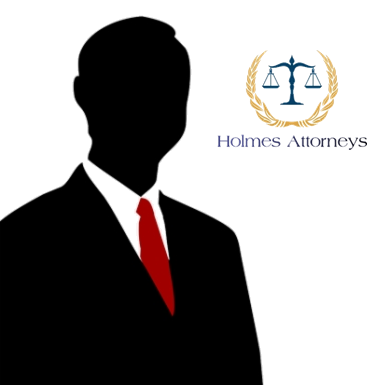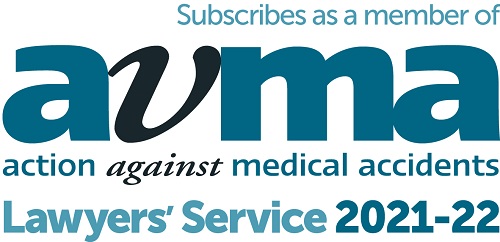Which is more important?
The recent High Court decision of Sheard -v- Cao Tri Do has given helpful guidance on how the court will approach the question of what took place in an appointment where there is ambiguity over what was said. The Court found that if the medical records are unclear, or there is scope for multiple interpretations of records, the Court will rely on the parties’ own testimony and credibility to determine what happened.
The underlying case related to a GP’s failure to refer a patient to hospital.
Our case study of medical notes v a witness statement
On 24 September 2014, the Claimant collapsed at home. He was taken by ambulance to Queen Elizabeth Hospital. He was diagnosed with an epidural abscess in his cervical spine. He underwent emergency decompression surgery. The Claimant is now confined to a wheelchair.
The claim related to treatment provided three days prior to the Claimant’s emergency admission. On 21 September 2014, the Claimant attended their GP. The Claimant would say that he described symptoms of severe neck pain and a two-week ongoing history of fever. The Claimant’s case was that, given the symptoms he described, the GP should have referred him to hospital. The GP did not.
The Claimant would claim that if the GP had made the hospital referral, blood tests would have first diagnosed septicaemia and follow up tests would have resulted in a much earlier diagnosis of the epidural abscess. Earlier treatment would have then resulted in the Claimant making a full recovery.
The interesting aspect of this judgement is how the Court approached the interpretation of medical records of an appointment which were at times ambiguous, and how it leveraged the witness evidence as a means of understanding the medical records.
For instance, one issue in dispute was whether the Claimant was exhibiting signs of septicaemia. The medical note of the appointment recorded: “for past 2 weeks, been unwell with viral illness – pyrexia and dizziness.” The passage was open for interpretation. Did the Claimant tell the GP that he had been feverish two weeks previously? Or did the Claimant tell the GP that he had been feverish for the past two weeks, including around the time of the appointment? How does a Court determine what happened given the notes? The Court had regard to witness evidence.
The Court was informed by an ample body of case law, in particular the cases of Gestmin SGPS SA v Credit Suisse (UK) Ltd EWHC 3650 (Comm) and R (Dutta) v GMC [2020] EWHC 1974 (Admin), Lachaux v Lachaux [2017] EWHC 385 (Fam) [2017] 4 WLR 57 and Ismail v Joyce [2020] EWHC 3453 (QB). These cases gave guidance on how witness recollection can sometimes be inaccurate, even if believed by the Claimant themselves, and especially in the context of stressful and emotionally draining civil litigation. The purpose of oral testimony is therefore not to side with the witness that appears most confident, but to instead consider the witness evidence as a tool to “subject the documentary record to critical scrutiny”.
The Court was complimentary of the Claimant’s oral evidence in difficult circumstances. The Court found that the Claimant’s testimony was “unquestionably truthful” despite finding that the Claimant was on multiple occasions to be mistaken in his memory of events. The Claimant admitted to not being able to recall certain events. The Court even concluded “[a]nd it must be acknowledged that the claimant is a poor historian”. However, the Court commented that the Claimant’s own admission that he was unable to recall certain events encouraged the Court to believe the Claimant was honest. The only issue for the Court to determine was therefore whether the evidence was “accurate and reliable”.
The outcome
The Court concluded that the Defendant’s note was thorough but “lacked particularity”. The judge also pointed to examples of the Defendant’s notes showing clear evidence that the doctor had misinterpreted what the Claimant said. For instance, the Defendant recorded that the Claimant was anxious over his job security (“has been stressed with job etc? facing redundancy etc.”) when in fact the Claimant was not working at the time of the appointment, having been made redundant back in 2007.
The Court disagreed with the Defendant doctor’s recording that there were “no red flags”, finding that it was more likely that the doctor had misinterpreted or misunderstood what was said in the appointment, despite the notes. Given the Claimant’s testimony, and the context of the Claimant’s likely symptoms at the time, it was more likely that the doctor had failed to appreciate the red flags at the time. This was despite the Defendant doctor being confident in witness evidence that he recalled events accurately.
So when it came to the interpretation of the medical notes, if there was a reference to an issue, for instance the Claimant being feverish, or the Claimant being unable to sleep, the Court found that it was “essential” to have regard to the oral evidence of the Claimant (albeit only where the Court was satisfied the claimant could recall the event).
In sum, the judgement demonstrates how Courts will rely on a combination of oral testimony and documentary evidence, as well as context, to determine what contemporary medical notes meant. The judgement underlines the importance of Claimants preparing accurate witness evidence to explain the context of any medical appointment and demonstrates that Claimants don’t need to be able to recall every event for Courts to favour their witness evidence. Finally, the case underlines how important it is to get the right legal advice before putting forward a case for clinical negligence.
How we can help
If you think you have got a similar case of medical negliegnece and you want to make a claim, please fill out our enquiry form on our website and our expert legal team will be in touch.







